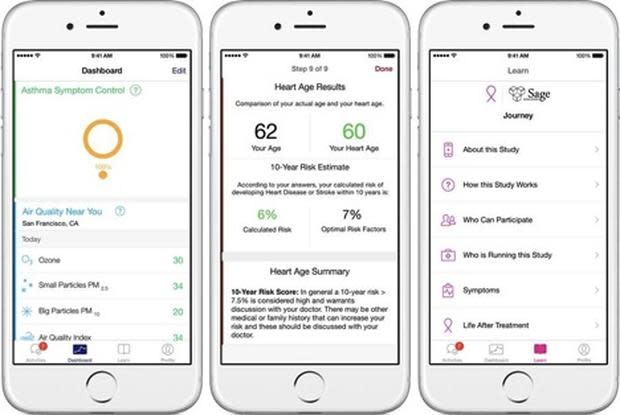ResearchKit may be Apple's most impactful new product

On Monday, Apple unveiled a new, ultra-thin MacBook, shared more details about its new smartwatch, and offered some information about its retail store efforts. In a surprising move, it also unveiled a new software SDK called ResearchKit, which is aimed at helping medical researchers gain important data from a huge pool of subjects: hundreds of millions of iPhone owners.
As Apple Senior Vice President of Operations Jeff Williams said during the keynote, some of the hardest parts of medical research are getting subjects to participate and getting frequent and accurate data.
With ResearchKit, researchers can create specialized apps that use various parts of the iPhone -- including the screen, accelerometer, microphone, and gyroscope -- to collect data from anyone who downloads an app.
Working with major universities and medical institutions, Apple hopes to allow researchers to "gather new types of data on a scale never available before." Indeed, a report out yesterday says more than 10,000 people enrolled in an app-based cardiovascular study in the first 24 hours of the app's availability. Bloomberg spoke to a researcher at Stanford who works on the project and said it would take more than a year and 50 medical centers to get that many people enrolled in that type of study.
The first five apps target a variety of different diseases.
The Asthma Health app, from Mount Sinai, Weill Cornell Medical College and LifeMap, is meant to help patients learn about what triggers their asthma and assist them in avoiding areas where air quality can worsen symptoms. GPS data from the iPhone is combined with air quality data from various sensors to provide feedback and help researchers learn about the affect environment has on asthma sufferers.
The mPower app, from the University of Rochester and the nonprofit Sage Bionetworks, uses sensors in the iPhone to help measure symptoms in patients with Parkinson's disease. The gyroscope and accelerometer are used to objectively measure a patient's gait, while the microphone can detect minute changes in a patient's vocalizations to determine progression of the disease. In addition, the team can measure the number of steps a patient takes to the state of their symptoms to look for correlations and, potentially, a path to reduce those symptoms.
The other three apps include GlucoSuccess for diabetes patients, Share the Journey for survivors of breast cancer, and MyHeart Counts, the app for the cardiovascular study mentioned above.
All five apps are available for free on the App Store and explain in detail to potential study participants how their data will be used and who will see it. Worth noting is the fact that Apple says it will never see any patient data.
Hopefully, ResearchKit, which Apple has promised to make open source and available to any researchers on any platform, will actually help doctors and medical researchers perform their jobs more effectively. It also shows how new technologies can be used for so much more than emojis and Angry Birds.
Would you participate in a medical study on your iPhone? Let us know your thoughts in the discussion thread below.

